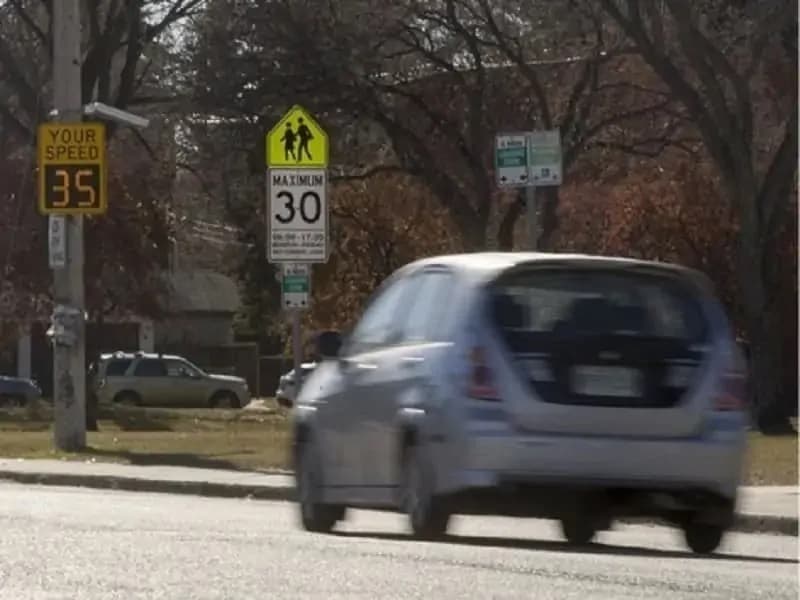Mississauga speed cameras dish out $1 million in fines, but program is losing money
Published June 29, 2022 at 12:19 pm

Speed enforcement cameras appear to be reducing the number of lead-footed drivers across Mississauga, but the program is losing money, a City staff report shows.
A June 3 report from City of Mississauga transportation and works staff presented to councillors at today’s (June 29) meeting of general committee notes that while the Automated Speed Enforcement (ASE) camera program has reduced speeding in and around school zones, it is also costing the City money due to issues collecting fines.
Between launch of the program in July 2021 and June 3, $1.04 million in fines (8,258 tickets) has been doled out to drivers via the ASE program, the report shows. Of that total, only $287,271 (just over 25 per cent) has been collected to date.
The ASE initiative has cost $853,610 to date to run, notes the report.
City staff says the relatively small amount in fines collected so far is attributable to the payment options/responses offered to offending vehicle owners. Once receiving notice of the fine, car owners have the right to ask for a trial or early resolution meeting, or they can pay the ticket by mail, online or over the phone.
The various payment options, notes staff, take time and subsequently impact when the City receives the money.
Additionally, Provincial Court matters, including the paying of tickets, were suspended during the COVID-19 pandemic.
Despite the current cash flow issue related to the ASE program, City staff say it is doing the job when it comes to reducing speeding across Mississauga.
The report notes that at the 35 locations where the radar cameras have been used to date, officials have recorded an average decrease in vehicle operating speeds of 8 km/h and average increase of 26 per cent in driver compliance with the posted speed limit.
“The ASE program is achieving positive results with respect to reducing vehicle operating speeds and increasing motorists’ compliance with the speed limit throughout the city,” the report concludes.
As such, the City is planning to expand the ASE program in the coming years, noting the cost of the initiative is expected to be “more than offset” by ASE revenues as things move forward.
The program was approved as part of the City’s 2020 budget and is part of Mississauga’s Vision Zero initiative, which aims to reduce road causalities to zero.
Though ASE results to date indicate some drivers are getting the message and slowing down, City staff also say compliance could be better.
Mayor Bonnie Crombie said earlier that the cameras are having the desired effect on some motorists.
“While I’m extremely happy that the presence of our speed cameras is changing the driving behaviour of some people, I’m very concerned that so many residents are continuing to speed,” she said earlier this year.
The staff report also notes that as of April 9 all 22 ASE cameras were “operational and enforcing posted speed limits within neighbourhood school area community safety zones” across the city.
The cameras are rotated between numerous locations, as needed.
Mississauga officials initially hoped all 22 ASE cameras would be up and running last December, but the rollout was delayed.
Speeders caught on camera have offence tickets mailed to the address of the vehicle’s registered owner.
INsauga's Editorial Standards and Policies








